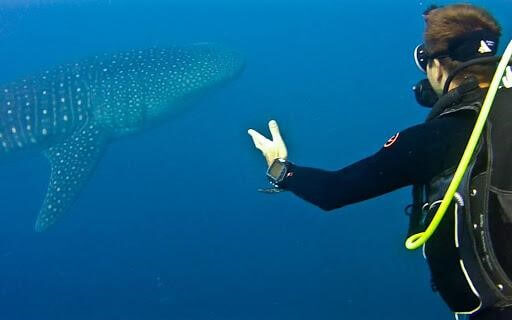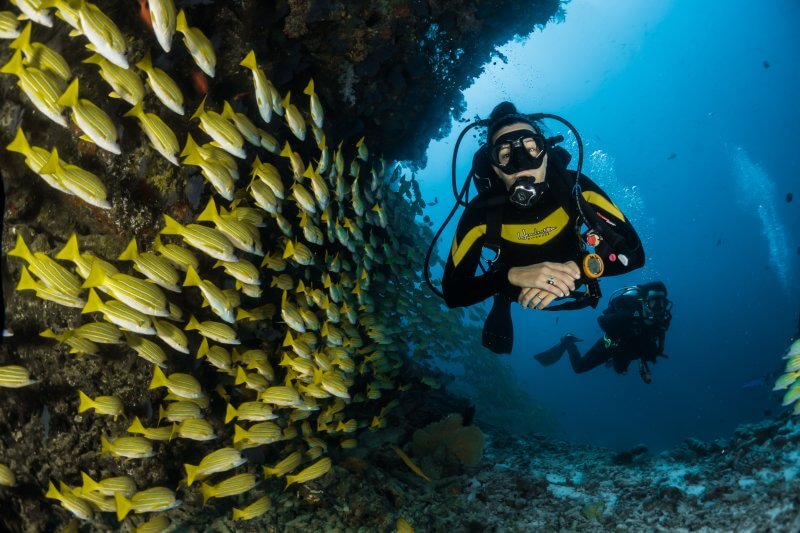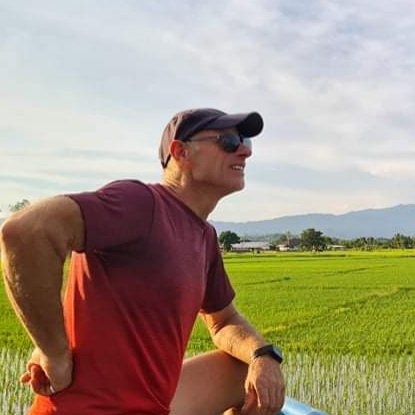800 times denser than air, not suitable to breathe through our lungs and 25x faster freezing than on land.
Stephan Werner is an expert for diving in Thailand, Khao Lak and also a contact person for activities and points of interest in the area. In this article he gives some precious advice for Scuba Diving in the Andaman Sea – Thailand’s West Coast.
If I had known the above during my first dive 30 years ago – not sure if enthusiasm or doubt would have won. However I was so excited from the feeling of under water breathing, that I turned my hobby into profession (please read further below about the correct way to breathe). Presently, 4.000 dives and 4 countries (Spain, Egypt, Maldives and now Thailand) later, I can say after 12 years Scuba Diving Instructor without any doubts: Diving is a highly motivating and healthy adventure: You stay outside in the nature, build trust together with new person (keyword: buddyteam) and you train important muscles.
True, diving is not that cheap (a day trip including 2 guides boat dives from cost including rental equipment minimum around 4.000 Baht). However it is worth the price: Your curiosity gets satisfied, you are in a state of deep relaxation and in one single dive there is sooo much to see!
Scuba Diving is greatly loved worldwide by many age groups!
Already ancient warriors used hollow reed to approach enemy lines as close as possible taking the advantage of hopefully being invisible under the protecting surface of the water. That was probably the Big Bang of Scuba Diving. Modern diving gear (such as the diving cylinder, regulator and neoprene suit) have been developed during and shortly after the 2nd world war in France (Yves Le Prieur).
If you can equalize the increasing pressure in your ear: pinch your nose and breathe softly against the resistance. You hear a snapping sound in both ears? Great! If you are physically fit (you don’t need to be a swim champion) and feel good in the water, you are all set to start the way into your diving career. Now let’s get wet!

Where to best dive in Thailand? Expect two huge Dive-Areas:
- In Gulf of Thailand you learn how to dive under easy circumstances. With some luck (I’m sure you’ll have some :) ) maybe even a whale shark can be spotted during your Diving Course. Typical Dive Instructor fate: it took me about 3.500 Dives before “my” first whale shark in the Maldives.
- Diving is loved there especially by the price conscious backpackers. On the other hand it is not so spectacular compared to the Andaman sea.
- In Thailand’s West you can go Diving in the Andaman Sea a In my opinion diving here is better because of the higher variety: From Koh Dok Mai, Sharkpoint, the famous Similan Islands to Koh Bon/Koh Tachai (Mantas!) and further up north to the Richelieu Rock, Surin and even Myanmar: dozens of different diving areas are waiting by you to be discovered! A multi day diving safari (snorkel safaris are also available) are perfect for that. Day Trips are possible of course as well.
- Speedboat day tours or onboard a comfortable but more slow classic diving vessel? You’ve got the agony of choice.
General Infos about the Andaman Sea:
- Both The Similan Islands and Surin Archipelago a forming 2 National Parks. They are open every year only from 15. October – 15. May. Between this time they are closed officially from government side due to the Monsoon time. Higher waves make it sometimes impossible to get there. Please send me an Email if you need further infos or have a question.
- Water is very clear most of the time and due to the tropical environment enjoyable warm. However there can be a short, cold current that lasts for about 1 or 2 minutes. Temperature can drop suddenly from 28 to about 21-22 Degrees Celsius. A shocking short moment. Therfore my advice: a full body Neoprene wetsuit (3mm is enough) helps to avoid feeling cold quickly. Now you can encounter this current, some call it the black monster, with a smile!
- Since 2018 dive courses (Open Water Diver) are not allowed anymore to be conducted anywhere at the Similan Islands. The reason is, that corals can be broken by mistake or the coral reef can take damage due to wrong fin movement. Of course this can happen to certified divers as well. What diving school teaches the correct way of breathing? And is taking enough time for every single student? With pleasure I will tell you that during a personal chat. The next, last point is dedicated to this, in my opinion, most important theme:

How should you breathe correctly under water?
It
was summer 1994 and me, 15 years old, just finished a dive together with my
guide in Fuerteventura. He asked me: “How do you breathe through the regulator
underwater?”
“I
breath normal, why do you ask? I replied to him.
The
guide responded: “Hm, your breathing sounds like this: breathing out –
breathing in – rest … breathing out – breathing in – rest.”
“Isn’t
that alright?”
But
in the same moment I understood, what he meant! The resting moment was
wrong.
“It
is much better, when you make the break after exhaling, not the other
way around.”
But why? When you rest in your exhaled condition, …
- It is possible to relax in a best way, because your thorax and abdominal wall are all in an eased mode.
- you take out your carbon dioxide better. Carbon Dioxide is mainly responsible for the “respiratory hunger” Keyword: diving safety!
- you will need less lead weights caused by less positive buoyancy and
- you reduce the risk of a lung over expansion down to a minimum.
This is for me the most important diving theme. This and the correct amount of air in your buoyancy control device (BCD) every dive can be a special one, because you will get as close as possible to the state of hovering!
I wish you success and fun for your hopefully long lasting diving career.
Dein Stephan.

As a 40-year old expat from Germany I live and work for about 10 years in Khao Lak, Thailand. With pleasure I share my relevant experience in the dive business and built up Know-How in tourism in Thailand with you. Thanks to exciting advices and transparent on-site research you will get a true holiday added value.
Mail: stephanwerner79@web.de
Facebook: Outdoor Activities in Khao Lak and Phang Nga
Header Photo by Sebastian Pena Lambarri on Unsplash, ale others by Stephan Werner

